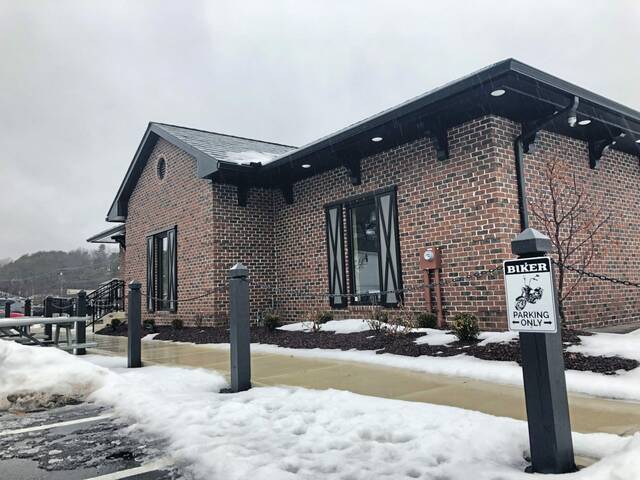https://mirror.triblive.com/local/westmoreland/export-train-station-will-open-on-weekends-formal-dedication-planned-for-summer-festival/
Export train station will open on weekends; formal dedication planned for summer festival

While its formal dedication will take place this summer, the Export train station will be opening its doors to the public on the weekends.
Built to replicate the borough’s former station, the building will house local history, with the Export Historical Society creating rotating displays and holding its monthly meetings there.
The station will be open from 10 a.m. to 4 p.m. Saturdays and Sundays through the end of March. Beginning April 1 through October, it will be open daily from 9 a.m. to 6 p.m.
A dedication is planned for this year’s Export Ethnic Food & Music Festival, set for Aug. 20.
The train station is part of a downtown area that borough officials have dubbed “Heritage Square,” which also includes the relocated Export war memorial and will soon include an extension to the Westmoreland Heritage Trail.
The borough’s application for a grant to help fund their full plans for Heritage Square was rejected in late 2021. At its Feb. 1 meeting, council authorized consultant Lisa Intrieri to apply for a different grant that may help fund the project, which also includes paving the full borough parking lot off of Washington Avenue.
In other council business:
Animal control
Borough officials renewed their contract with animal control officer Maria Dillman, of Hideaway Kennels in Irwin.
Mayor Joe Zaccagnini said Martin will be hired at the same rate as her previous contract, and will attend council meetings on a quarterly basis for an update.
Council voted unanimously to award the contract. Hideaway Kennels also provides animal control services for New Stanton, Lower Tyrone and Loyalhanna, and Youngwood.
Hideaway is a 100% no-kill shelter, and also operates a nonprofit sister company, TJ’s Rescue Hideaway.
Borough residents can contact Hideaway at 724-382-8198 or by emailing thehideawaykennels@gmail.com.
Smoke testing
Council President Barry Delissio announced that smoke testing of the borough’s wastewater system will begin taking place this fall.
The testing is part of the borough’s compliance with a consent order from the state’s Department of Environmental Protection. All of the Franklin Township Municipal Sanitary Authority’s client communities are part of the order, which lays out a roughly eight- to nine-year process to identify and address storm water inflow and infiltration issues throughout the system.
Within four years of signing the agreement, each signatory must perform a smoke-and-dye test of its entire system. Any issues discovered must then be remedied within 18 months.
FTMSA officials are required to prepare a flow model of its system by March, and create a sanitary sewer overflow elimination plan that is to be submitted in September.
Copyright ©2025— Trib Total Media, LLC (TribLIVE.com)
